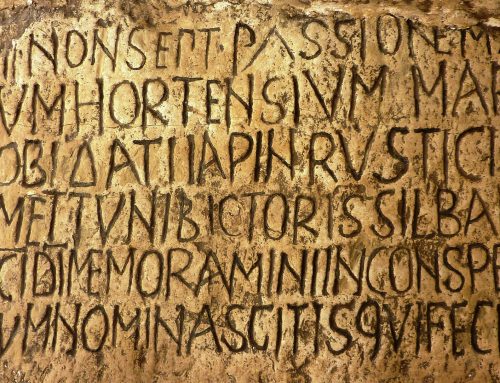Even though St. Paul never knew Christ in person, the Apostle knew the heart of Jesus, and that’s what matters, says Benedict XVI.
There are two ways to get to know a person, Benedict XVI explained in the first part of the address: to know a person physically, or to know the heart of a person.
“To know ‘according to the flesh,’ in a corporeal way, means to know only from the outside, with external criteria,” he said. “One can see a person many times, recognize the individual’s facial characteristics and the many details of how he acts: how he talks, moves, etc.
“Yet, even knowing someone in this way, one does not really know the person, one doesn’t know the nucleus of the person. Only with the heart is one able to truly know a person.”
The Pope Emeritus gave as an example the Pharisees and Sadducees who “knew Christ from the outside […] but they did not know him in his truth.”
He continued: “There are learned individuals who know many details of Christ, and simple people who don’t know these details, but they know Christ in his truth: ‘The heart speaks to the heart.’
“And Paul essentially says that he knows Jesus in this way, with the heart.”
Having considered the ways of knowing a person, the Holy Father took up again the question of what Paul knew of the historical Christ.
“It seems he never met Christ during his early life. Surely he learned the details of Christ’s earthly life from the apostles and the nascent Church,” he said.
Benedict XVI spoke of three ways in which knowledge of the historical Jesus — his teachings, the events of his life — are present in the writings of Paul.
The first manner is by “explicit and direct” references to the “words and facts of the life of Jesus.” The Pope referred to passages in Romans, for example, where Paul speaks of the existence of Christ’s “brothers.” He also pointed to passages in 1 Corinthians where Paul speaks of the events leading up the Last Supper.
Paul’s letters also reflect many central themes and images drawn from the synoptic Gospels and the preaching of Jesus himself, the Pontiff continued.
He used as an example 1 Corinthians in which Paul wrote that God “chose the foolish of the world.” The Pontiff said “one notes the faithful echo of the teachings of Jesus on the simple and the poor.”
“Paul knows — from his missionary experience — that these words are true, those who are childlike are the ones who have their hearts open to knowledge of Christ,” the Holy Father added.
Another theme, continued the Pontiff, is that of the Kingdom of God. “Jesus’ own instructions for entering the Kingdom of God are valid for Paul in regard to the justification by faith: Both require an attitude of great humility and availability, free of presumptions, to receive the grace of God.”
Benedict XVI continued: “For example, the parable of the Pharisee and the publican teaches exactly what St. Paul discusses when he insists that nobody should glorify themselves in the presence of God.
“Also, the teaching of Jesus on the publicans and the prostitutes, who are more willing than the Pharisees to receive the Gospel, and his decisions to share a table with them, are found in the doctrine of Paul on the mysterious love of God toward sinners.”
“St. Paul did not think Jesus was something historical,” the Pope said, “as a person from the past. He certainly knew the great tradition regarding his life, his words, his death and his resurrection, but he did not treat them as something from the past; he proposed them as the reality of the living Jesus.
“The words and actions of Jesus for Paul do not pertain to a historic time, to the past. Jesus lives now and speaks with us now, and lives for us.
“This is the true manner to get to know Jesus, and to learn the tradition of him.”
“We should also learn to know Jesus,” the Ponitff added, “not physically, as a person of the past, but as our Lord and brother, that today is with us and shows us how to live and how to die.”







Leave A Comment
You must be logged in to post a comment.